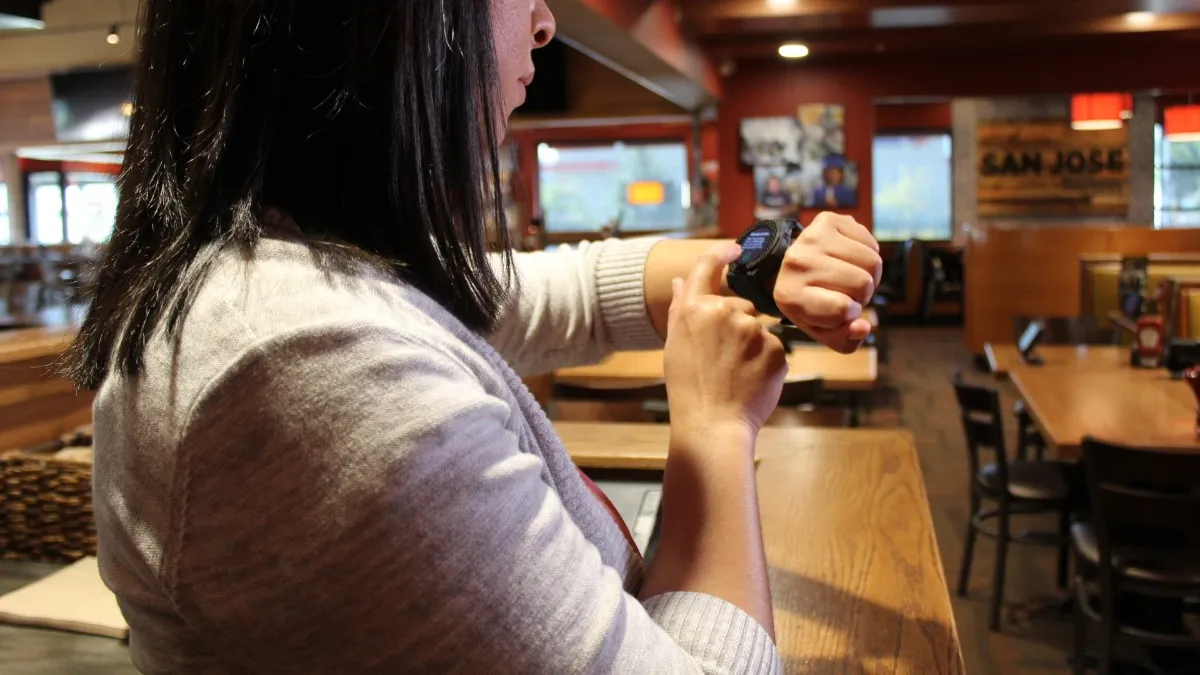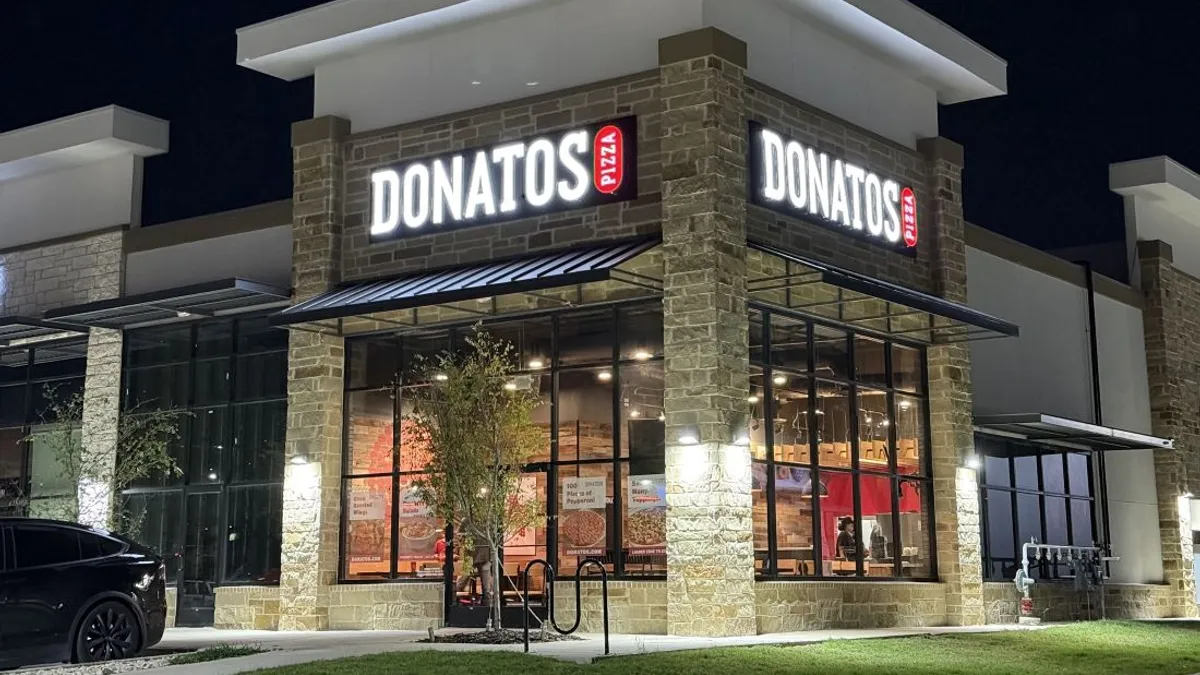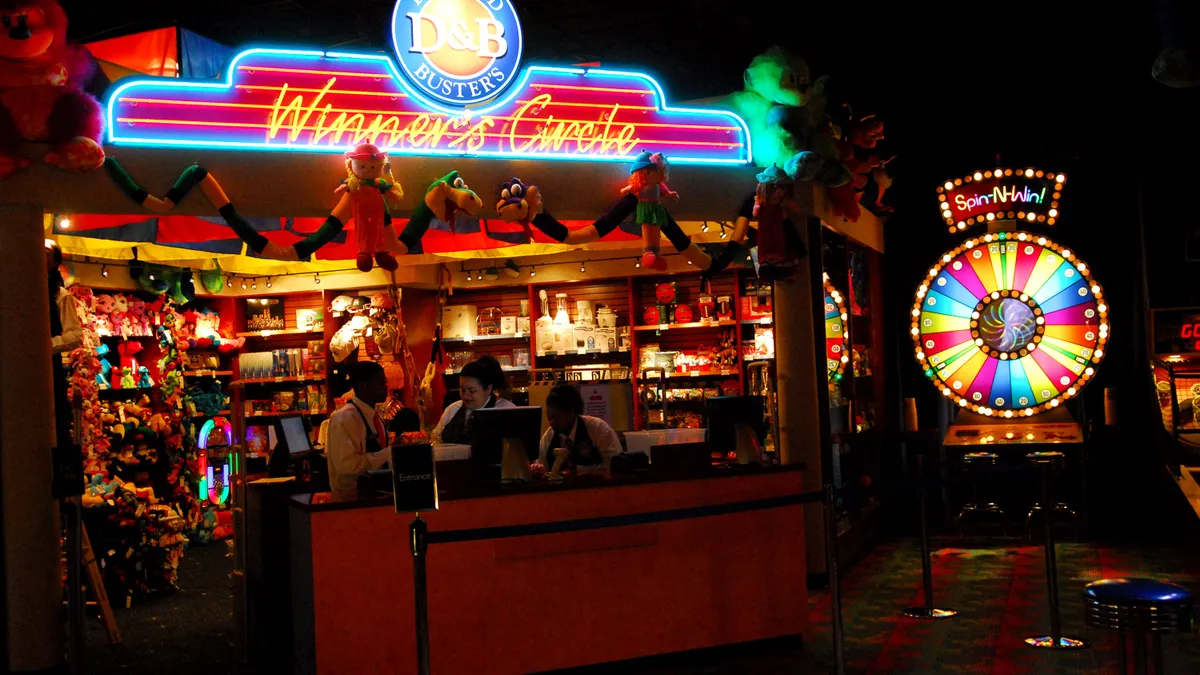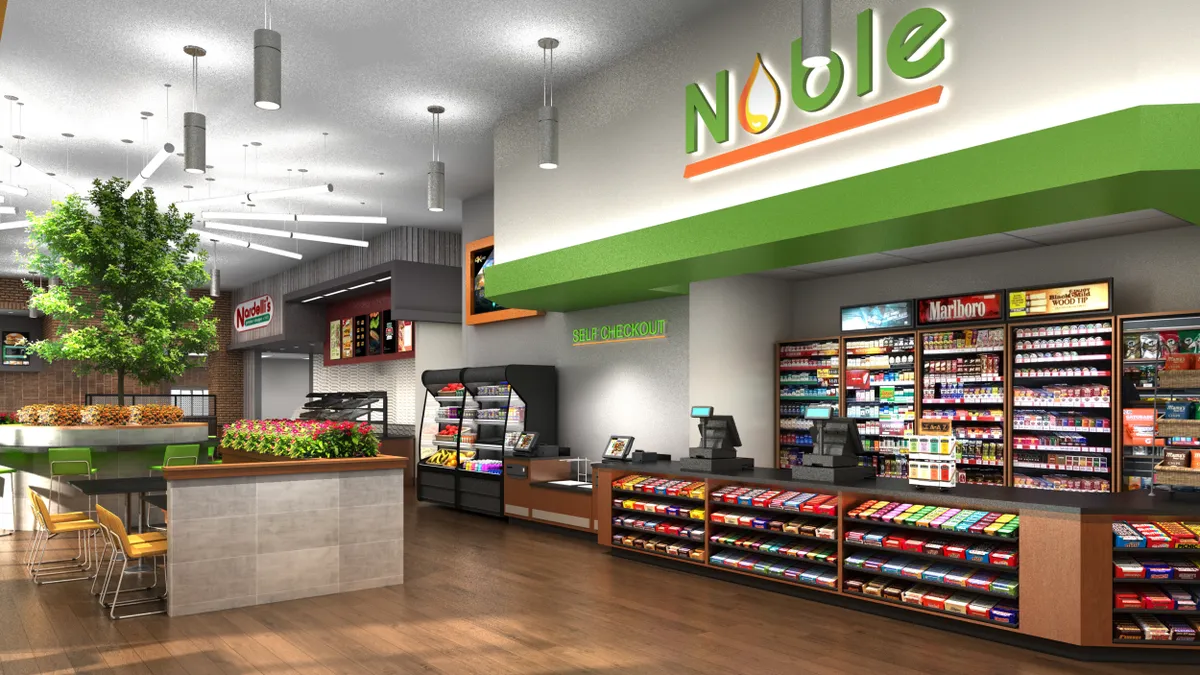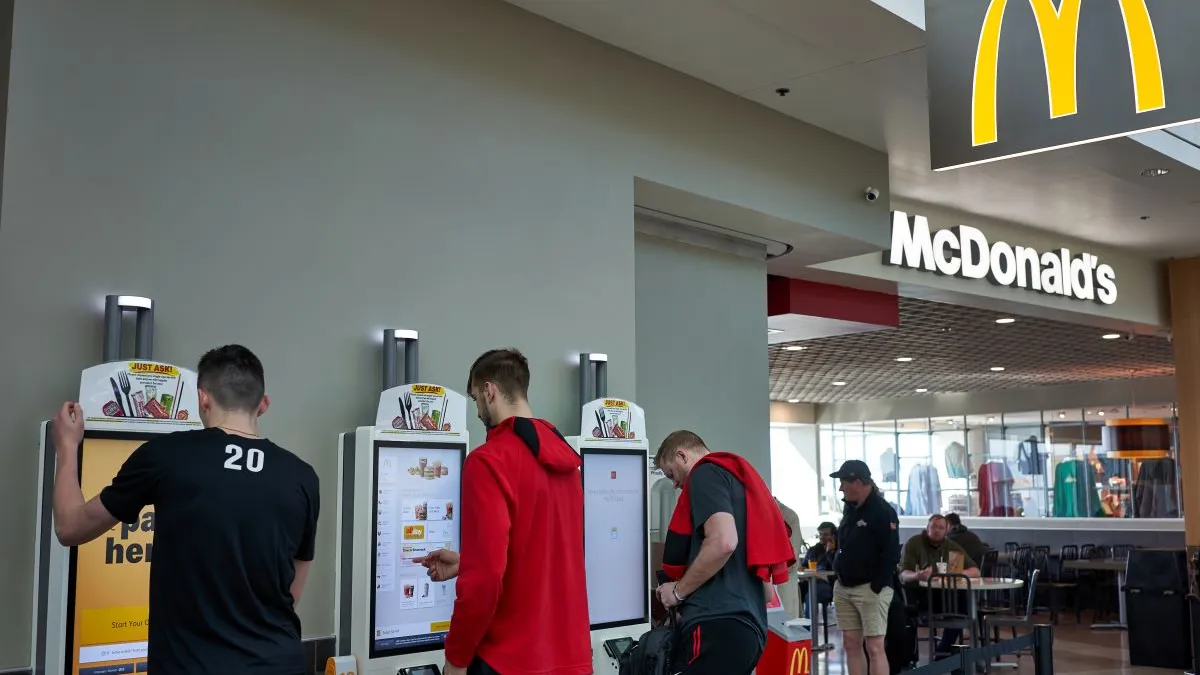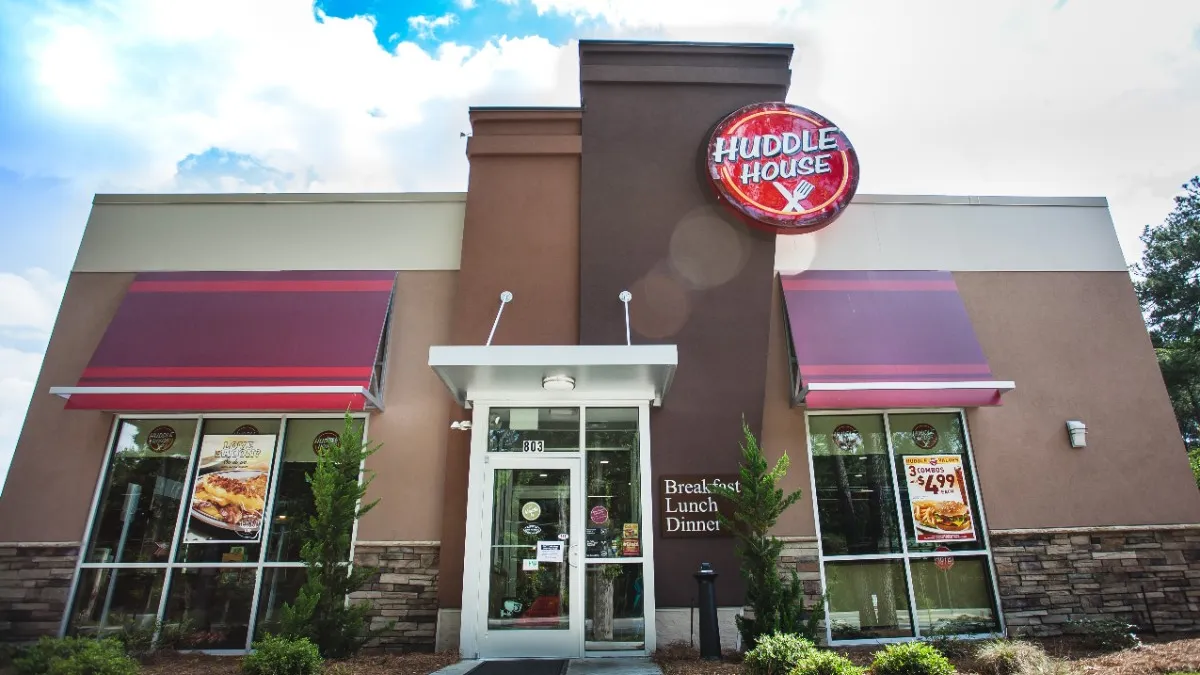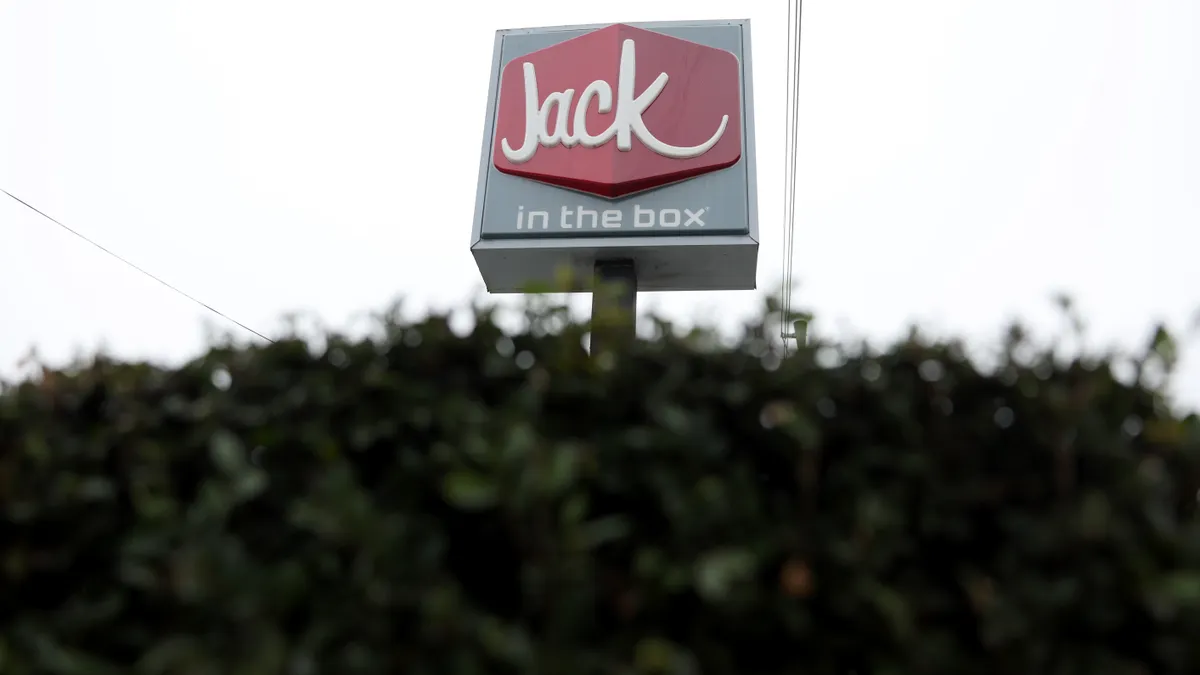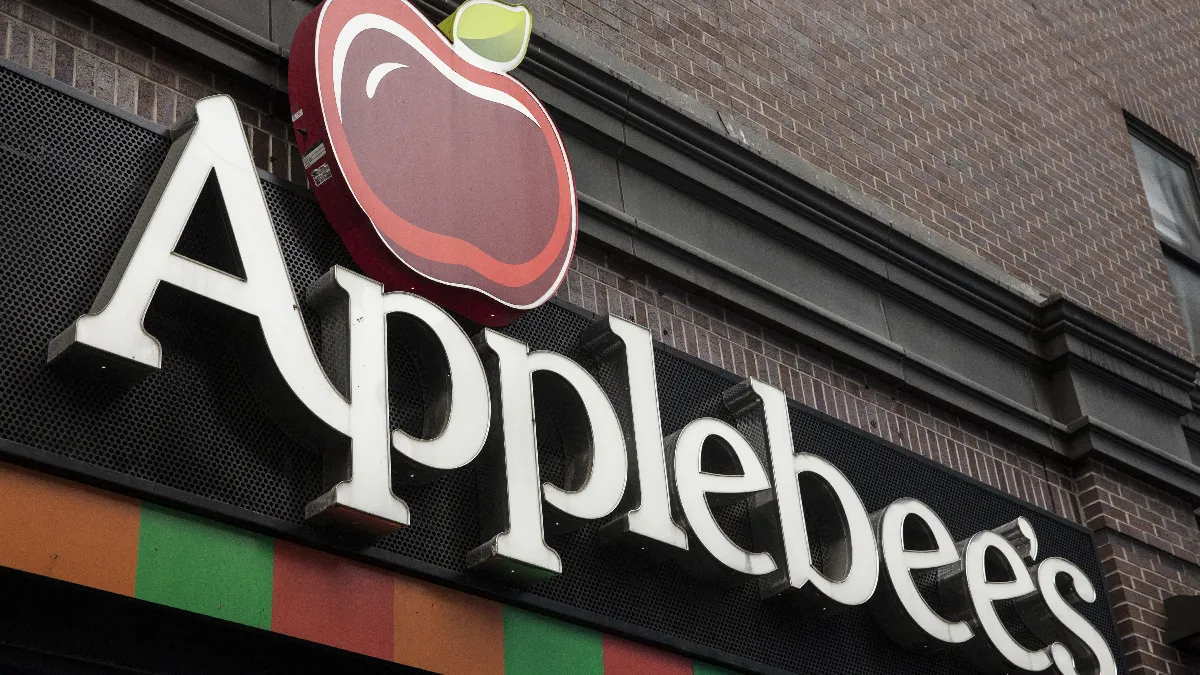When Rajat Suri was an MIT graduate engineer student, he dropped out to become a waiter. The founder and CEO of the restaurant tech startup Presto spent a year and a half waiting tables and testing technology prototypes to improve restaurant operations.
"What I have learned from being a waiter is just how hard the restaurant business can be," Suri told Restaurant Dive. "There are a lot of things that can go wrong in a restaurant that could be fixed with tech."
Technology is quickly invading the restaurant space to improve the guest experience and staff productivity, better track inventory, reduce order errors, provide delivery and off-premise capabilities and make it easier to gives guests exactly what they want when they want it.
Suri ended up forming a technology company E la Carte, later rebranded as Presto, in 2008 and tested prototypes of what would become Presto’s tabletop devices. This technology allows guests to view menus, order their food, provide feedback and pay at the table via handheld server assistants that help staff place orders from the table. These devices are in 1,800 locations, including Applebee's and Red Lobster. The tech company plans to double the number of its restaurant locations this year.
A decade later, his company has launched a smartwatch-like device that informs servers of guests' needs and can notify management when a customer wants a manager’s attention, according to a press release. It also unveiled Presto AI, an artificial intelligence platform that analyzes data in real time — providing actionable recommendations and predictive modeling that allows operators to make data-driven decisions.
"Over the last 10 years, we've seen seismic shifts in the restaurant industry, especially in increased challenges with competition, rising labor costs and consumer expectations," Suri said in a press release. "We see an opportunity to apply technology, with a focus on tabletop ordering and front-of-house [operations], to help operators effectively address these issues with turnkey solutions."
The idea to create restaurant tech first came about when Suri and fellow engineering students went out to dinner to celebrate someone's birthday. They had a great time until the seven engineers tried to split the check. He told Restaurant Dive the process took them nearly an hour, and they still didn't get it.
"Over the last 10 years, we've seen seismic shifts in the restaurant industry, especially in increased challenges with competition, rising labor costs and consumer expectations."

Rajat Suri
Presto founder and CEO
"Basically it became a bad joke about how many MIT engineers does it take to split a check," he said. "I also realized that that restaurant experience was a very universal experience. It affects everybody."
Suri, who also co-founded Zimride, now known as Lyft, knew there had to be a better way. And the opportunity for success was ripe, since there weren't many dominant tech companies working in the restaurant industry.
"I realized how messy the real world can be and how much opportunity there is for tech to make a difference," he said.
Emerging restaurant technologies
Restaurants are finding ways to integrate more technology that can help improve thin margins, deal with shrinking labor pool to increase productivity and find better ways to handle the growing demand for delivery. In addition to front-of-house tabletop devices, restaurants have been working to integrate point-of-sale systems with delivery platforms. Fast food and fast casual chains have been incorporating ordering kiosks, digital menus and mobile ordering apps to beef up delivery capabilities and remain competitive.
Presto's rollout of its wearables will help compliment its existing tabletop technology. The idea for wearables came about after Suri realized that the "call a server" feature on the tabletop devices didn't always lead to an immediate response.
"That's really what hospitality is about: responding to your guest or customer," he said.
With wearables, staff can receive notifications about what a guest requests, such as a to-go box, he said.
"The guests are getting what they want faster and the staff is saving a trip." Suri said. "We realized this was a common issue and we designed a product around it."
With all this technological deployment, the next step will be to distill data collected by these devices to improve operations and anticipate guest. This is where AI and machine learning will come into play.
"Managers are constantly under a deluge of data," he said.
It can be difficult to understand all the different problems in both the back and front of the house, especially on a busy Friday night shift, he said.
AI can help input all that information and distill it as key action items for employees who can better decide what to do and help managers decide how to staff a shift to optimize productivity. The platform can inform staff via wearables to speed up service if there is a line forming at the door, for example.
"There is a lot going on at a restaurant at any given time that AI can help with," he said. "Over time, we think it will free up the servers and managers to do what they do best and take … all the grunt work and all the decision making work off their plates."
The technology also can analyze tabletop platforms to decide which items should be showcased on tablets at the right time to increase revenue, he said.
"There is a lot going on at a restaurant at any given time that AI can help with. Over time, we think it will free up the servers and managers to do what they do best and take … all the grunt work and all the decision making work off their plates."

Rajat Suri
Founder and CEO, Presto
With more tech implementation, Suri said he expects restaurants to work better and more efficiently and seamlessly, anticipating a guest's needs since staff will be equipped with more tools in the future.
"This vision of a smart, personalized, frictionless experience is what restaurants will have to gravitate towards to survive in the world 10 years from now," he said. "It's a very exciting time in the industry, and there are lots of major changes happening."



